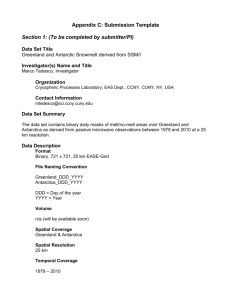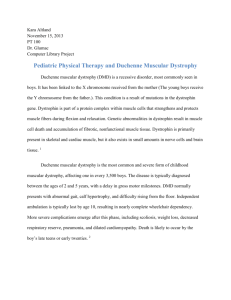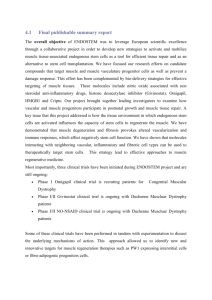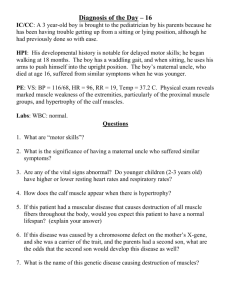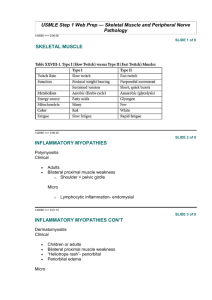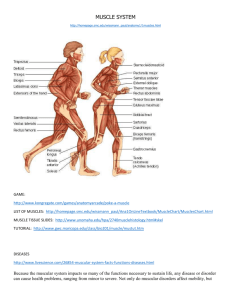Biosketch Francesco Saverio TEDESCO, MD PhD
advertisement
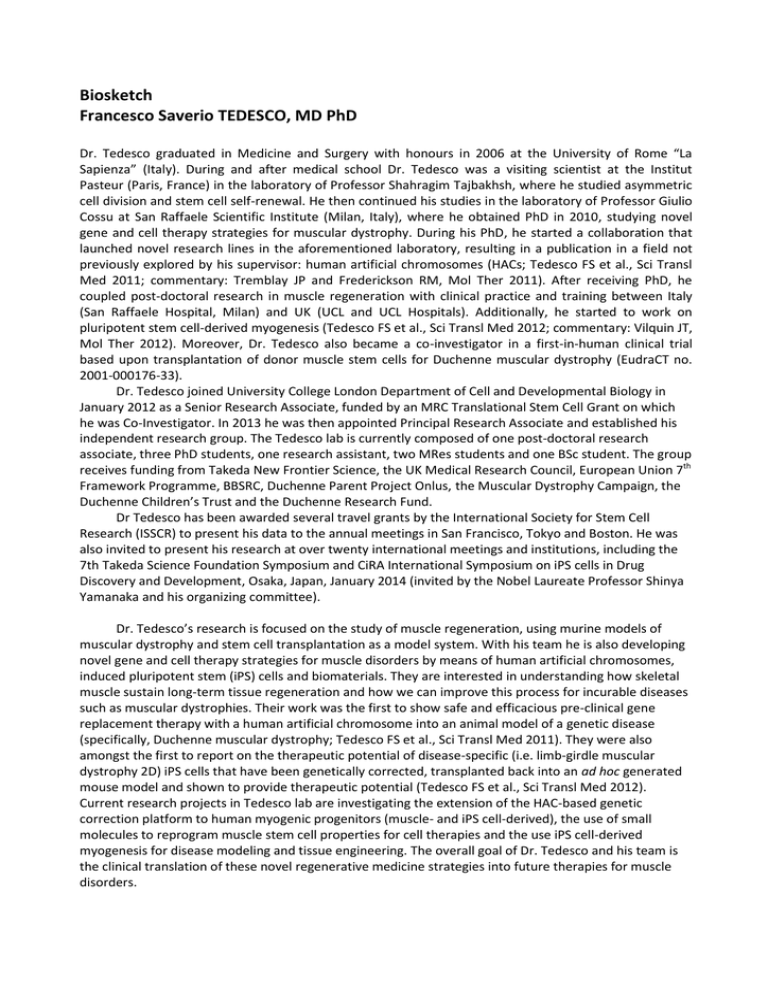
Biosketch Francesco Saverio TEDESCO, MD PhD Dr. Tedesco graduated in Medicine and Surgery with honours in 2006 at the University of Rome “La Sapienza” (Italy). During and after medical school Dr. Tedesco was a visiting scientist at the Institut Pasteur (Paris, France) in the laboratory of Professor Shahragim Tajbakhsh, where he studied asymmetric cell division and stem cell self-renewal. He then continued his studies in the laboratory of Professor Giulio Cossu at San Raffaele Scientific Institute (Milan, Italy), where he obtained PhD in 2010, studying novel gene and cell therapy strategies for muscular dystrophy. During his PhD, he started a collaboration that launched novel research lines in the aforementioned laboratory, resulting in a publication in a field not previously explored by his supervisor: human artificial chromosomes (HACs; Tedesco FS et al., Sci Transl Med 2011; commentary: Tremblay JP and Frederickson RM, Mol Ther 2011). After receiving PhD, he coupled post-doctoral research in muscle regeneration with clinical practice and training between Italy (San Raffaele Hospital, Milan) and UK (UCL and UCL Hospitals). Additionally, he started to work on pluripotent stem cell-derived myogenesis (Tedesco FS et al., Sci Transl Med 2012; commentary: Vilquin JT, Mol Ther 2012). Moreover, Dr. Tedesco also became a co-investigator in a first-in-human clinical trial based upon transplantation of donor muscle stem cells for Duchenne muscular dystrophy (EudraCT no. 2001-000176-33). Dr. Tedesco joined University College London Department of Cell and Developmental Biology in January 2012 as a Senior Research Associate, funded by an MRC Translational Stem Cell Grant on which he was Co-Investigator. In 2013 he was then appointed Principal Research Associate and established his independent research group. The Tedesco lab is currently composed of one post-doctoral research associate, three PhD students, one research assistant, two MRes students and one BSc student. The group receives funding from Takeda New Frontier Science, the UK Medical Research Council, European Union 7th Framework Programme, BBSRC, Duchenne Parent Project Onlus, the Muscular Dystrophy Campaign, the Duchenne Children’s Trust and the Duchenne Research Fund. Dr Tedesco has been awarded several travel grants by the International Society for Stem Cell Research (ISSCR) to present his data to the annual meetings in San Francisco, Tokyo and Boston. He was also invited to present his research at over twenty international meetings and institutions, including the 7th Takeda Science Foundation Symposium and CiRA International Symposium on iPS cells in Drug Discovery and Development, Osaka, Japan, January 2014 (invited by the Nobel Laureate Professor Shinya Yamanaka and his organizing committee). Dr. Tedesco’s research is focused on the study of muscle regeneration, using murine models of muscular dystrophy and stem cell transplantation as a model system. With his team he is also developing novel gene and cell therapy strategies for muscle disorders by means of human artificial chromosomes, induced pluripotent stem (iPS) cells and biomaterials. They are interested in understanding how skeletal muscle sustain long-term tissue regeneration and how we can improve this process for incurable diseases such as muscular dystrophies. Their work was the first to show safe and efficacious pre-clinical gene replacement therapy with a human artificial chromosome into an animal model of a genetic disease (specifically, Duchenne muscular dystrophy; Tedesco FS et al., Sci Transl Med 2011). They were also amongst the first to report on the therapeutic potential of disease-specific (i.e. limb-girdle muscular dystrophy 2D) iPS cells that have been genetically corrected, transplanted back into an ad hoc generated mouse model and shown to provide therapeutic potential (Tedesco FS et al., Sci Transl Med 2012). Current research projects in Tedesco lab are investigating the extension of the HAC-based genetic correction platform to human myogenic progenitors (muscle- and iPS cell-derived), the use of small molecules to reprogram muscle stem cell properties for cell therapies and the use iPS cell-derived myogenesis for disease modeling and tissue engineering. The overall goal of Dr. Tedesco and his team is the clinical translation of these novel regenerative medicine strategies into future therapies for muscle disorders.
